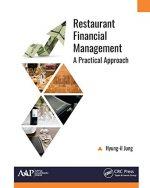Question
Skip to main content Home Study tools My courses My books My folder Career Life Expert Q&A Find solutions to your homework Search Question The
Skip to main content
- Home
- Study tools
- My courses
- My books
- My folder
- Career
- Life
Expert Q&A
Find solutions to your homework
Search
Question
The airline industry of Bangladesh is still in its infancy. Especially the domestic routes are not lucrative enough yet since very few fly on air from one district to another. Currently there are four major airlines operating in Bangladesh: Biman, NovoAir, Regent and US Bangla. A new airline company named Balaka Airlines is exploring the possibility of starting domestic flights either for DHK-CTG route or DHK-RAJ route. Expenses to consider include aircraft rental cost, gate and landing fees and labor costs such as local baggage handlers and maintenance workers. The following table provides a summary of the after-tax cash flows associated with two investment alternatives. The after-tax cash flows associated with each investment are:
Year Net Cash flow
DHK-CTG DHK-RAJ
(BDT 35,00,000) - (BDT 40,00,000) 1430466 - 1922258 1810251 - 1830649
1830388 - 1830388
1830649 - 1830649
1922258 - 1430466
The firm needs to decide now which project it should invest and thus it needs to apply different capital budgeting tools. A number of capital budgeting tools need a discount rate. The financial manager of the company identified that the firms WACC is the appropriate discount rate for evaluating the projects applying the capital budgeting tools. But, its WACC is not yet calculated. So, now the firm is interested in measuring its overall cost of capital. The firm is in the 40% tax bracket. Current investigation has gathered the following data: Debt: The firm can raise an unlimited amount of debt by selling BDT 1,000 par-value, 10% coupon interest rate, 10-year bonds on which annual interest payments will be made. Current market price of the bond is BDT 1,200. Preferred stock: The firm can sell 10% (annual dividend) preferred stock at its BDT 100 per share par value. The cost of issuing and selling the preferred stock is expected to be BDT 2.5 per share. An unlimited amount of preferred stock can be sold under these terms. Common stock (New issue): The firms common stock is currently selling for BDT 80 per share. The firm expects to pay cash dividends of BDT 6 per share next year. The firms dividends have been growing at an annual rate of 6%, and this rate is expected to continue in the future. Floatation costs are expected to amount to BDT 3 per share. The financial manager of the company is already overwhelmed with enormous workload and hence hired you as the assistant manager of the finance department for the company and seeing
your competence in the area of finance assigned you to suggest the best route based on the following calculations: 1. Calculate specific cost of each source of financing (Round the answer to the nearest two decimal points percent, like 11.12%). 2. Calculate WACC (The firms optimum capital structure shows 40% Long-term debt, 15% Preferred stock, and 45% Common stock equity). 3. Determine the Payback period, net present value, internal rate of return and profitability index for both of the routes. 4. Which one is the best route if they are independent or mutually exclusive projects? 5. Suppose DHK-CTG route is risky due to the possible entry of new competitor in the future. Accordingly, the risk-adjusted discount rate for this route will be 7% plus existing rate. How this will affect your decision? Support your decision by calculation.
Step by Step Solution
There are 3 Steps involved in it
Step: 1

Get Instant Access to Expert-Tailored Solutions
See step-by-step solutions with expert insights and AI powered tools for academic success
Step: 2

Step: 3

Ace Your Homework with AI
Get the answers you need in no time with our AI-driven, step-by-step assistance
Get Started


